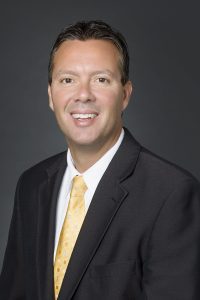
Over the course of this past month we’ve shared important information from financial aid experts about how their organizations are tackling this incredibly important step in the college-going process.
How does your organization help students, particularly those from underserved communities, to financially prepare for college?
Most students and their families would know the Iowa College Access Network (ICAN) as the place that helps you fill out your Free Application for Federal Student Aid (FAFSA)Form. Last school year we filled out more than 6,000 FAFSAs in our offices and at FAFSA Ready Iowa events throughout the state. The FAFSA form just gets the ball rolling for the financial aid process. We also help students/families interpret Financial Aid Packages, understanding loan options and working through the verification process, if selected.
The mission of ICAN is to help students prepare for future success. The financial aid process is just one step in that success. We also focus on career and college exploration in our appointments and presentations because all of those together are what students need to attain their education and career goals through informed decision making.
In the last three years, we have also launched a Financial Aid Certification Training covering FAFSA completion and financial aid basics for school counselors, admissions and financial aid professionals, college access professionals, and really anyone who works with students and/or families. No one entity is going to be able to personally help ALL students and families. These trainings were designed to empower more people to assist students and families in filling out the FAFSA form and be able to answer basic financial aid questions.
What’s the most common question that students ask about how to pay for college? How do you answer this question?
I asked my other colleagues this question to see what they thought. The most common response was “Students don’t ask the questions about financing college – the parents do”.
That really is a problem. At ICAN, we tell the students that it is their education and they need to learn about the process. It will feel overwhelming for the majority of students, but don’t let your parents do everything. Work together as a family in completing the FAFSA form, comparing financial aid packages, deciding on how much in loans to take out, etc. Students should be involved in ALL parts of their education and training selection process including applying for financial aid.
What advice would you give your 16-year-old self about how to finance your college education?
The one thing that stands out to me more than anything is to tell my 16-year-old self to work harder on researching and applying for scholarships.
I did not do this as a high school senior. There are scholarships that juniors can apply for but definitely by the start of senior year, we would like to see students taking a few hours each week to search and apply for scholarships.
I encourage students in my presentations to think of it as a part-time job. If you take one hour a week during your senior year for 20 weeks and you apply for 20 $500 scholarships, receiving four of those scholarships, that totals $2000. Even though you only had a 20 percent success rate, you received $2,000 for 20 hours of work which equals to $100 per hour. How many high school seniors are going to find part time jobs for $100 per hour?
There are so many places to look for scholarships including parent’s work and places of worship. Your school counselors will receive much of the local scholarship information, so visit their office or section of the school website to find out about them.
Online is a great way to research, too. We are linked to many free scholarship searches on our website as well as our own ICAN Scholarship database.
We also have some great advice and tips on applying for scholarships at on our website.
What other organization(s) or agency(s) deserves some recognition for the good work that they do in this field?
There are two organizations that deserve recognition in our state for the work they do with students and their families.
First, the Iowa Association of Student Financial Aid Administrators (IASFAA). There are so many great people in this organization who are willing to help students and families through the financial aid process, even if those families aren’t attending the college or university that the person works for. It is a great organization to network and learn from on how to navigate the financial aid process. Second, the Iowa Association of College Admission Counseling. Just like IASFAA, this organization is made up of wonderful folks who will help students and their families no matter what colleges or universities they are looking at. When Early FAFSA came into play four years ago, more pressure was put on the admissions counselors to understand the ins and outs of the financial aid process and they have done a great job of learning that process to help the students and families they serve.
Erick started with ICAN at its inception in 1998. He supervises the day to day operations of the eight ICAN locations throughout the state. Prior to working at ICAN, Erick was the assistant director of admissions at William Penn College. He has served or is currently serving on many educational organization boards including, the Iowa ACT State Organization, the Iowa School Counselor Association, Iowa Association of College Admission Counseling and Iowa Association of Student Financial Aid Administrators. Erick works with many families each year, whether at presentations or one-on-one appointments, to navigate through the career and college planning and financial aid processes.
